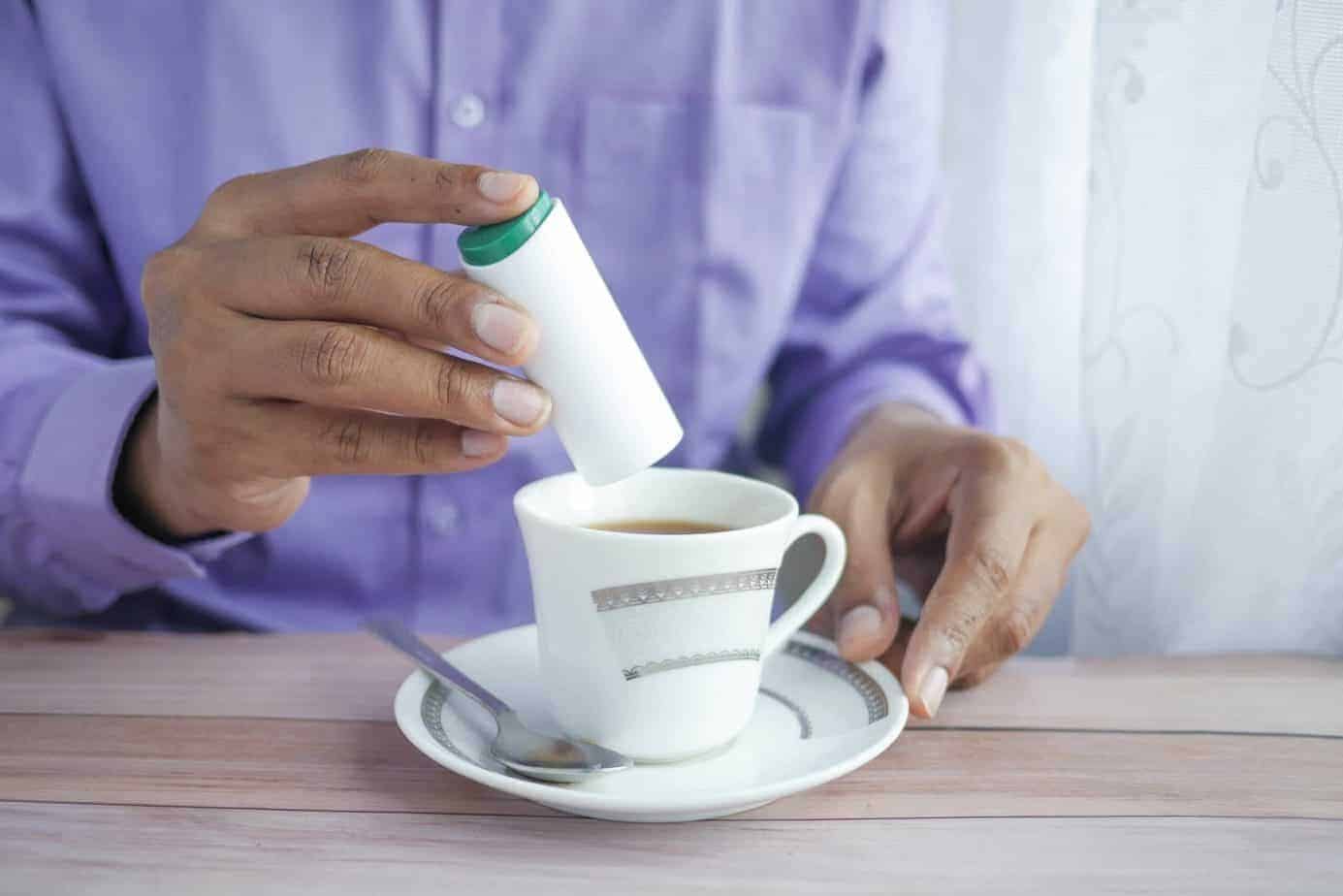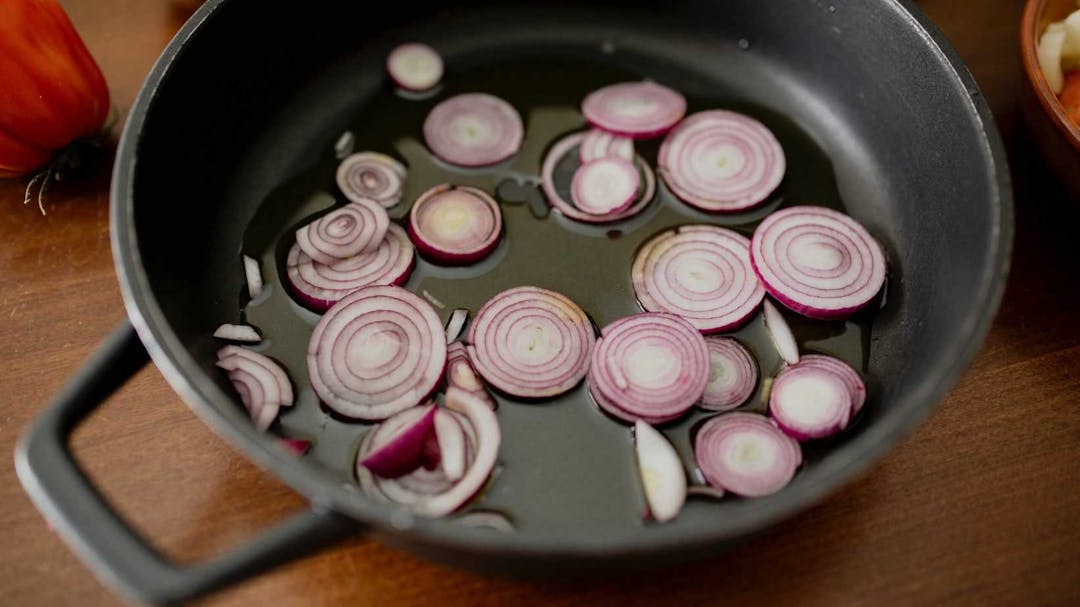


Find foods you can eat.
The Truth About Artificial Sweeteners
Published on November 17, 2021It’s no secret that consuming too much added sugar isn’t good for our health, but what about sugar replacements? Sugar-free foods and beverages made with artificial sweeteners may seem like a healthier option, but are they really? And what about “natural” sugar replacements like stevia, monk fruit, and sugar alcohols? I’m here to give you the rundown from a registered dietitian’s perspective!
What exactly are artificial sweeteners and where are they found?
Artificial sweeteners are synthetic substances that taste sweet but have zero calories or grams of sugar and are non-cariogenic, meaning they don’t cause dental cavities. Artificial sweeteners serve as a sugar replacement in a variety of foods from candy to soda, powdered drink mixes, baked goods, ice creams, coffee beverages, gelatin desserts, chewing gum, jams and jellies, syrups, yogurts, and more. The artificial sweeteners currently approved by the FDA that are found in foods in the U.S. include:
- Aspartame
- Advantame
- Acesulfame potassium (Ace-K)
- Saccharin
- Sucralose
- Neotame
Most artificial sweeteners are significantly sweeter than regular sugar. For example, aspartame is 200 times sweeter than table sugar and sucralose is 600 times sweeter than table sugar. Because they are so sweet, we tend to use a smaller amount of artificial sweeteners compared to table sugar. They also often have a slight bitter aftertaste.
If you have diabetes, are looking to lose weight, or just want to minimize added sugar in your diet, having access to a zero-calorie, sugar-free option that lends a sweet flavor may sound almost too good to be true. But before you reach for the diet soda and sugar-free ice cream, let’s take a look at what the research shows.
The Research on Artificial Sweeteners
Animal studies suggest that consuming artificial sweeteners can contribute to anything from weight gain to sugar cravings, diabetes, cancer, and detrimental changes in gut bacteria. Although these findings are not necessarily generalizable to humans, they raise valid concerns. Additionally, a limited number of human observational studies have also alluded to the dangers of artificial sweeteners.
Effects on appetite, weight, and blood sugar
It may seem logical that replacing table sugar with calorie-free substitutes would lead to weight loss and improved blood sugar stability, however, according to the research this is not the case. Animal studies repeatedly demonstrate that when the brain senses a sweet taste, the hormone insulin rises regardless of whether or not actual sugar is consumed. When insulin rises, it pulls sugar from the blood into cells to be used for energy or stored. Normally this is a positive thing, because without sufficient insulin, blood sugar would become too high after eating and our cells wouldn’t be able to use their preferred energy source. But when blood sugar never actually increases because the food consumed is artificially sweetened, blood sugar drops too low, leading to hunger and carbohydrate cravings as a protective mechanism to quickly bring blood sugar back up. When rats were fed artificial sweeteners in research studies, they actually ended up consuming more calories in the long run, gaining body fat over time. Additionally, when insulin levels are chronically high from consuming large quantities of artificial sweeteners regularly, the sensitivity of insulin receptors may decrease, potentially contributing to the development of insulin resistance and diabetes.
A 2017 study found that our brain reward circuits are only activated when a sweet taste is matched with calorie intake, but when a “mismatch” occurs, meaning we ingest something that is very sweet but low in calories, our brain’s reward circuits don’t register that we’ve eaten, which can cause us to eat more in order to activate those reward circuits. Another study of over 3,000 adults published in the journal Obesity, supported this notion and found the more artificially-sweetened beverages participants consumed each week, the more likely they were to be overweight or obese.
Effects on gut bacteria
Studies demonstrate artificial sweeteners saccharin, sucralose, and aspartame can make us more susceptible to certain gastrointestinal pathogens, like E. coli. Most recently, in August of 2021, a new Israeli study suggested that these 3 artificial sweeteners also impair the ability of our gut bacteria to communicate with each other properly. As a result, the balance and function of our gut bacteria may be disrupted, potentially leading to health issues.
Effects on cancer risk
A limited number of animal studies have suggested that artificial sweetener consumption may increase cancer risk. However, the animals in most of the studies were fed very high doses of artificial sweeteners, likely far greater than one would consume through food and beverages in one sitting. Additionally, it remains unclear whether or not artificial sweeteners have the same cancer-causing effects on humans.
What about stevia, monk fruit, and sugar alcohols?
Low-calorie and non-caloric sweeteners like stevia, monk fruit, and sugar alcohols are referred to as “novel sweeteners” and are generally thought of as healthier, and more natural options. That being said, they aren’t totally benign and it may not be a good idea for certain individuals to consume them.
Stevia has become quite popular in recent years, popping up in a variety of foods marketed to the health conscious consumer. It comes from the stevia plant and is processed into a white powder that has a similar appearance to table sugar. It has zero calories and can be anywhere from 200-400 times sweeter than table sugar. Research on stevia’s potential health effects remains inconclusive, but one interesting 2019 study conducted on rats suggested that stevia consumption may disrupt gut bacteria. The effects of stevia on humans and the threshold for expecting to see any adverse effects still remain unclear, therefore, it’s probably best to consume stevia in moderation.
Monk fruit, also referred to as lo han guo, is derived from a fruit native to China and Thailand. Juice from the monk fruit is collected and then dried and processed to make a powder. It’s also available in liquid and granular forms. Monk fruit is 100 to 250 times sweeter than table sugar, contains zero calories, and is thought to have antioxidant properties. There are no established side effects for consuming monk fruit, however, since monk fruit is newer to the alternative sweetener scene in the U.S., it hasn’t been as well studied as other sugar alternatives. To date, moderate consumption appears to be safe and pose little health risk.
Sugar alcohols are types of carbohydrates that we cannot fully digest, therefore, they act similarly to fiber and may have a prebiotic effect, meaning they may feed our good gut microbes. They’re naturally found in certain fruits and vegetables, like blackberries and peaches, for example, and despite what their name suggests, they don’t contain any ethanol (the psychoactive compound in alcohol). Sugar alcohols are unique in that they aren’t totally calorie-free, but they do contain significantly fewer calories compared to table sugar with only 2.6 calories per gram compared to the 4 calories per gram in table sugar. Sugar alcohols have a low glycemic index and don’t impact blood sugar or insulin levels as much as table sugar, making them an appealing option for those with diabetes. Interestingly, rather than causing dental cavities like regular sugar, certain sugar alcohols are thought to actually help prevent tooth decay. The most well-established downside to sugar alcohols is that they can cause digestive distress for some, particularly those with irritable bowel syndrome (IBS). This is because our gut bacteria break them down and in the process, produce gas. Additionally, they tend to have an osmotic effect, meaning they cause water to be pulled into the intestine, leading to diarrhea if consumed in larger quantities.
Are artificial sweeteners regulated?
Artificial sweeteners and the novel sweeteners stevia, monk fruit, and sugar alcohols, are considered “generally recognized as safe” (GRAS) by the FDA. This means that they are recognized as “having been adequately shown to be safe under the conditions of their intended use.” While this sounds somewhat reassuring, classifying food additives as GRAS is actually a bit of a loophole. Food companies are allowed to declare a food additive as GRAS on their own, and any food additive considered to be GRAS is not required to go through FDA premarket approval or thorough research before being labeled as safe to consume. Many have criticized this rule for allowing food companies to introduce food additives to their products with very little safety evaluation or federal supervision.
Who should avoid artificial sweeteners and novelty sweeteners?
Given the available research at this time, most people would likely benefit from avoiding artificial sweeteners. Consuming smaller quantities of actual sugar every once in a while is likely better for our overall health than regularly consuming artificial sweeteners. That being said, those trying to wean off soda or other sugary foods may find it helpful to use small quantities of artificial sweeteners for very short-term use. It is worth noting, however, that those with a rare disorder called phenylketonuria (PKU) must avoid aspartame specifically. This is because those with PKU are not able to metabolize the amino acid phenylalanine, causing it to build up in the blood and aspartame contains phenylalanine.
For the average person, periodically consuming stevia, monk fruit, and sugar alcohols in moderation likely will not significantly impact health. For diabetics, these sweeteners can be a nice option to have on occasion without worrying about blood sugar spikes. Those with IBS or a sensitive GI tract may need to avoid sugar alcohols if they are a symptom trigger and those with malabsorption would also benefit from avoiding sugar alcohols. Individuals with binge-eating disorder may also want to consider avoiding low-calorie or calorie-free sweeteners, as they may exacerbate bingeing behaviors by altering our brain’s reward circuits.
Tips for avoiding artificial sweeteners
If you choose to avoid artificial sweeteners, it’s important to read ingredient lists on food labels, especially for foods advertised as being “sugar-free,” “light,” or having fewer calories. The Fig mobile app (still in beta) makes this easy by scanning ingredient labels for you! It is also helpful to focus on incorporating mostly whole, minimally-processed foods into your diet. To satisfy a sweet tooth, try including foods that are naturally sweet, like fruit, as well as adding spices like cinnamon to foods for extra flavor and a subtle sweetness.
The bottom line
Current research suggests that artificial sweeteners may be harmful to our health. Consuming small quantities of real sugar is likely to satisfy a sweet tooth with fewer adverse side effects compared to frequently relying on artificial sweeteners in larger quantities. While some of the more natural low-calorie and non-caloric novel sweeteners don’t seem to be strongly associated with adverse health effects, they aren’t for everyone. If you have any concerns about whether or not a particular sugar alternative is appropriate for you, it’s best to consult with your healthcare team.
 How to Start Grocery Shopping Like a Dietitian
How to Start Grocery Shopping Like a Dietitian The Ultimate Guide to Cooking Oils
The Ultimate Guide to Cooking Oils